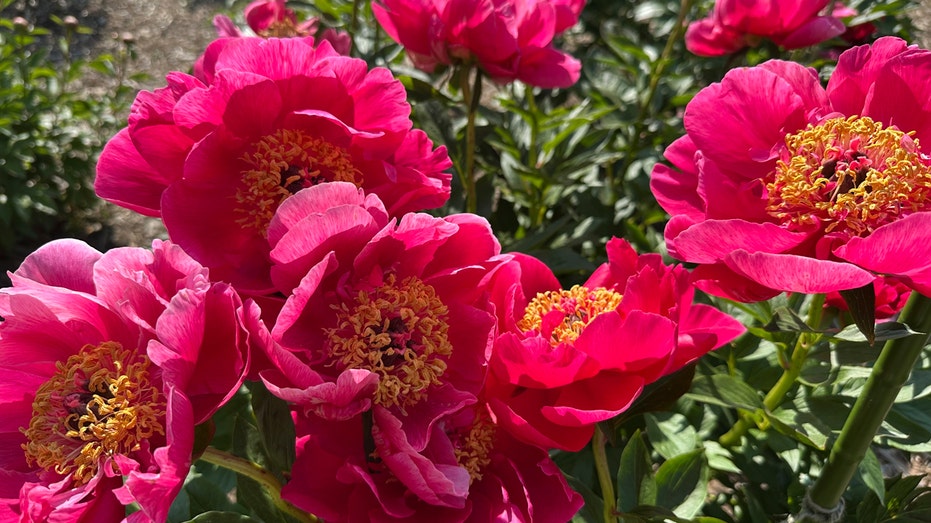Historic University Garden Vandalized in Apparent Anti-Israel Protest: 'Don't Waste Your Tears'
University of Michigan's iconic peonies were vandalized Sunday morning, with around 250 flowers cut in what authorities may be an anti-Israel act.

Hundreds of prized peony plants at the University of Michigan's storied W.E. Upjohn Peony Garden were left decapitated this week, following what officials describe as a deliberate act of vandalism with apparent political motivation. The incident has both shocked the Ann Arbor community and reignited concerns over campus tensions related to the ongoing conflict in the Middle East.
The W.E. Upjohn Peony Garden, located within Nichols Arboretum, is widely regarded as a botanical treasure—housing North America's largest collection of historic herbaceous peonies. At the height of bloom, the garden showcases around 10,000 flowers from 800 different plants, attracting visitors from across the country. But on Sunday morning, staff discovered that nearly one-third of those peonies, about 250 plants, had their blossoms crudely severed, leaving behind rows of denuded stems.
According to university officials, scattered papers were recovered at the scene, hinting at the perpetrator’s motives. The notes, laced with pro-Palestinian sentiments, declared, "Plant lives don't matter. Human lives do. Stop the war. Resist Imperialism." They continued, "Palestinian lives deserve to be cared for. More than these flowers. Don't waste your tears on the peonies. They are not even dead and will grow again next spring."
The university has issued a forceful condemnation of the attack. "Make no mistake, the criminal tactics used in the recent act of vandalism at Nichols Arboretum are wholly unacceptable," read an official statement. Administrators urged students and activists to pursue constructive and meaningful dialogue rather than resorting to destruction, emphasizing that damaging community spaces undermines the ideals of reflection and hope they are meant to foster.
This is not the first time the campus has witnessed property damage connected to the Israel-Palestine conflict. Earlier this academic year, President Santa Ono’s home was spray-painted with anti-Israel messages, including the word "intifada." These incidents reflect a broader national trend as university communities grapple with heated debate and activism surrounding geopolitical events abroad.
The timing of the peony garden vandalism also coincides with other recent confrontations, including a violent incident in Boulder, Colorado, during a pro-Israel demonstration that left several injured. The suspect in that case reportedly made statements expressing lethal intent toward Zionist individuals, according to federal authorities.
As of now, the University of Michigan's Division of Public Safety & Security has launched a criminal investigation into the destruction of the peonies. With no group yet taking responsibility, officials are urging anyone with information to come forward, stressing the need to maintain campus safety and the cherished spaces the university community holds dear.
Many students and faculty have expressed sadness and outrage over the vandalism, calling it a violation of both the university’s values and the spirit of the beloved garden. For now, restoration efforts are underway, and hopes remain that the storied peonies will indeed return to full bloom next spring, even as the search continues for those responsible.




